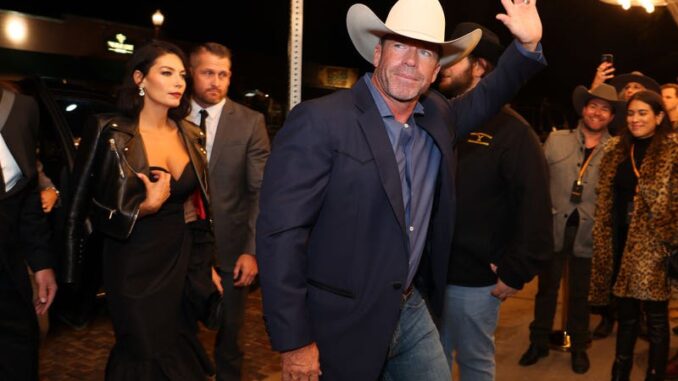
The Lone Star State Gets a Yellowstone Twang: Rio Palo and the Myth of the West Reimagined
The dust is kicking up in Texas, not just from cattle drives and oil wells, but from the lens of a camera. News that “Rio Palo,” the latest spinoff in the ever-expanding Yellowstone universe, has begun filming in the Lone Star State is more than just another Hollywood headline. It signals a significant shift in the geographic and thematic landscape of the franchise, a relocation of the western mythos from the majestic peaks of Montana to the sun-baked plains and sprawling ranches of Texas. It raises questions: Can Texas truly capture the essence of the Yellowstone saga? And what new shades will be painted onto the enduring, yet often problematic, canvas of the American West?
Yellowstone, at its heart, is a story about land, legacy, and the brutal struggle to maintain both in a rapidly changing world. The Dutton family, clinging to their ancestral ranch in Montana, embodies the myth of the rugged individualist facing down encroaching modernity. They are cowboys battling corporations, developers, and even the very concept of progress. While undeniably compelling, the show has been criticized for romanticizing violence, perpetuating a simplistic view of history, and overlooking the perspectives of marginalized communities. Now, with "Rio Palo," this familiar narrative is being transplanted to a new, yet equally fraught, terrain.
Texas, with its own rich history of ranching, oil, and independence, provides fertile ground for a Yellowstone-esque tale. The state, larger than many countries, offers a diverse landscape that mirrors the vastness of the Montana setting. From the rolling hills of the Hill Country to the arid expanses of West Texas, “Rio Palo” promises to deliver breathtaking visuals and a sense of scale that is integral to the Yellowstone brand. Furthermore, Texas boasts its own unique brand of “outsider” mythology. The iconic Texan image, forged in rebellion and self-reliance, resonates with the Dutton family's stubborn determination. This shared DNA suggests that "Rio Palo" can successfully tap into the same primal chords that made Yellowstone a cultural phenomenon.
However, the move to Texas is not without its challenges. Montana’s specific allure lies in its pristine wilderness, its sense of untamed frontier. While Texas has its own stark beauty, it is a landscape more deeply scarred by human intervention. Oil derricks punctuate the horizon, cities sprawl outwards, and the echoes of conflict with indigenous populations are deeply embedded in the land. To truly succeed, "Rio Palo" must avoid simply replicating the Yellowstone formula in a different locale. It needs to grapple with the specific nuances of Texas history, acknowledging the complex relationship between ranching, oil, and the exploitation of land and labor.
Furthermore, the show must be careful not to perpetuate harmful stereotypes about Texans. The popular image of the gun-toting, ultra-conservative Texan is a caricature that ignores the state’s rich cultural diversity and progressive movements. To paint an accurate and compelling portrait of Texas, “Rio Palo” needs to move beyond tired clichés and explore the complexities of the state’s social and political landscape. It needs to represent the voices of the diverse communities that call Texas home, including its Hispanic and African American populations, whose histories are inextricably intertwined with the land.
The filming of "Rio Palo" in Texas represents a significant opportunity to reimagine the myth of the American West. By acknowledging the specific challenges and opportunities presented by the Texas setting, the show can potentially offer a more nuanced and inclusive perspective on the enduring themes of land, legacy, and survival. If successful, "Rio Palo" can be more than just another Yellowstone spinoff. It can be a powerful exploration of the complexities of the American West, viewed through the unique lens of the Lone Star State, a narrative that respects its history while forging a new, more equitable path forward. Only time will tell if the dust settles to reveal a story that is both compelling and authentic, a tale that truly captures the spirit of Texas and its place in the ever-evolving mythology of the West.
